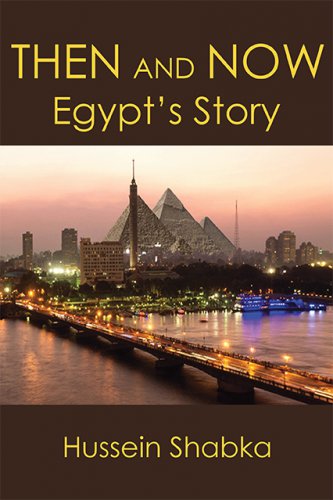
About the Author
Born in Egypt, Dr. Hussein Shabka holds a Ph.D. in Sociology from Kent State University, Ohio. He has taught in universities in the USA, Iran, the United Arab Emirates, and Egypt and now lives in London. Throughout his career, Dr. Shabka has carried out consulting assignments for the United Arab Emirates Ministry of Higher Education, the Management Training & Development Institute in Washington, D.C., and the Egyptian Research and Training Center (ERTC). Resident in Cairo during the 2011 revolt, he experienced firsthand the shattering of hopes raised by the departure of the Mubaraks. Witnessing such tumultuous currents gripping all aspects of Egyptian life was a major impetus for this book.
THEN AND NOW: Egypt’s Story
Hussein ShabkaNew Academia Publishing, 2018
564 Pages
ISBN 978-0-9981477-5-8 Paperback
For BULK ORDERS, order directly from New Academia Publishing.
Queries: orders@newacademia.com
About the Author
Born in Egypt, Dr. Hussein Shabka holds a Ph.D. in Sociology from Kent State University, Ohio. He has taught in universities in the USA, Iran, the United Arab Emirates, and Egypt and now lives in London. Throughout his career, Dr. Shabka has carried out consulting assignments for the United Arab Emirates Ministry of Higher Education, the Management Training & Development Institute in Washington, D.C., and the Egyptian Research and Training Center (ERTC). Resident in Cairo during the 2011 revolt, he experienced firsthand the shattering of hopes raised by the departure of the Mubaraks. Witnessing such tumultuous currents gripping all aspects of Egyptian life was a major impetus for this book.
About the book
The rise and fall of civilizations has been a fact of history since before it was recorded. It is a normal process. So what is the particular significance of Egypt’s descent from a wealthy, organized, sophisticated society into the chaotic milieu that reigns today? Perhaps it relates to the nature of the yawning gap that exists between that sophistication that endured for more than four thousand years and earned Egypt the title, om el donya, mother of the world, as Egyptians refer to her, and the social and cultural degradation over the last two thousand years since the last pharaoh, Cleopatra, departed the scene.
As the living gods, the pharaohs were the pivots around which all social institutions turned, creating stability, prosperity, and security for four millennia. The death of the last pharaoh, therefore, was not merely an event that signaled loss of independence and a transfer of power to Rome. It signaled the collapse of the foundations of society and the beginning of a steep decline into chaos.
For the following two millennia, a succession of foreign occupations and despotic rulers undermined Egypt’s national identity, exported her wealth to far away seats of power, imported a new language and culture and spawned social values that are inimical to the very notion of modernity. Understanding these developments provides one possible route to getting a handle on the social and cultural deterioration and its effects in Egypt. This may also allow insight into developments today not only in Egypt, but also in the greater Middle East that surrounds her.
Praise
“I strongly believe that this book with its exhaustively researched materials is a good addition to the existing literature on the history of Egypt.”
—Dr. Abdel-Hamid Abdel-Latif, Professor of Sociology, Chairman of Egyptian Research and Training Center.
“A ‘timely event’ may be an understatement for this book: it is needed by scholarship and it would appear to parallel an underground swell of emotion within Egypt itself.”
—Dr. Roy Townsend, Professor of American Studies, retired.
“This work is unique in sociology in that it takes a very expansive historical view in trying to understand Egyptian society, politics and culture today. I believe that the conclusions the author draws from this expansive historical overview is his original contribution to the scholarly work and debates in the social sciences on contemporary Egyptian society, culture and politics.”
—Helen Rizzo, Professor of Sociology, American University in Cairo





 Coming Soon
Coming Soon Awards
Awards